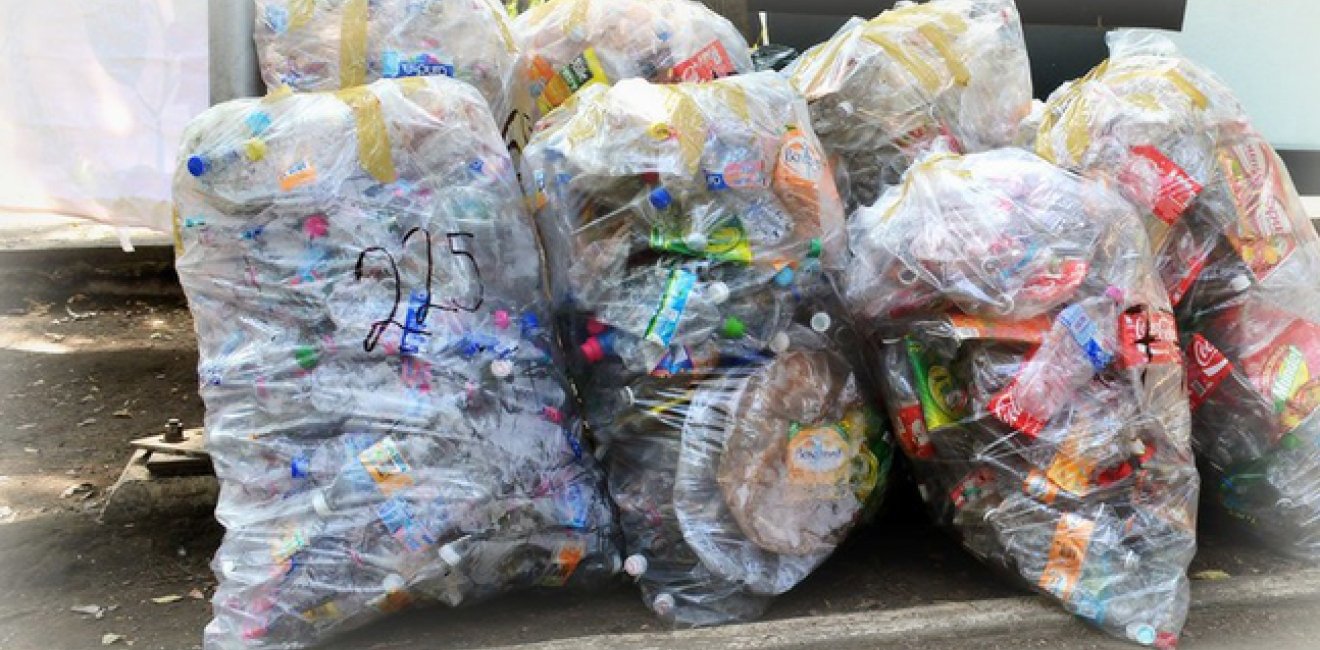
A blog of the Africa Program
The ban on single-use plastic bags in Kenya was prefaced by vigorous sensitization campaigns undertaken by various international bodies like UNEP's Environment's Global Plastics Platform. These sensitization efforts highlight the lasting harmful effects of plastic pollution, and have accelerated global momentum toward reducing plastic pollution. For example, various UN member states, including Kenya and Rwanda, have made ambitious efforts toward banning single-use plastic bags.
Global Awareness Toward Stemming the Growing Impact of Plastic Pollution
This urgency to reduce plastic pollution is informed by the fact that the production of plastic not only has surpassed that of other materials, but also is mostly designed to be thrown away after single use. This has created an environmental scourge of epic proportions. Experts reckon that 60 percent of the world's plastic has ended up in landfills, oceans, or other natural environments. A single plastic bag takes seconds to make, yet years to decompose.
With regard to plastic, the United Nations Environment Programme (UNEP) sustainability roadmap posits that, "the future costs of removing all single-use plastics accumulating in the environment is estimated as higher than the costs of preventing littering today. In Europe alone, the estimated costs for cleaning shores and beaches reach €630 million per year, and studies suggest that the annual economic damage plastics impact on the world marine ecosystem is at least $13 billion."
In the long term, implementing a ban is the most effective means of reducing the use and disposal of single-use plastics, given the ease with which they are littered, their unviable recycling feasibility, as well their low prices.
How Kenya Became A Global Pioneer in The Fight Against Single-Use Plastics: An Assessment of The World's Toughest Ban on Plastic Bags
The Kenyan government has stepped forward as a global pioneer (along with Rwanda) in the fight against single-use plastics. In 2017, Kenya gave itself the immense task of achieving total eradication of plastic bags by June 2020, which required collaboration between national government entities such as the Kenya Revenue Authority (KRA) and National Environment Management Authority (NEMA), county governments, as well as the Kenya Association of Manufacturers (KAM).
For this effort, in 2017 Kenya adopted a three-pronged strategy that included government regulations, private company innovations, as well as individual actions. This comprehensive strategy turned out to be a key step in ensuring total compliance with the ban, because prior to 2017 Kenya had made three previous attempts to implement the ban — all which were unsuccessful.
Kenya launched its new strategy in August 2017 via Gazette Notice No. 2334, which imposed restrictions on the manufacture, importation, and use of plastic bags used both commercially and in households. This applied to not only shopping carrier bags, but also "flat bags constructed without handles and with or without gussets."
The government sought to enforce compliance with the 2017 ban differently than in prior attempts. First, policymakers, regulators, government authorities, and international bodies, created a comprehensive consultative platform on which policy gaps in the regulatory framework could be articulated. This included stakeholder workshops and research projects organized among NEMA, UNEP, and other actors. Through this process, the effectiveness of the ban was monitored and evaluated for two years, after which new recommendations were made. Findings included an 80 percent compliance rate with the ban. This is commendable since, according to UNEP figures, "about 100 million plastic bags were used in Kenya every year in supermarkets alone" prior to 2017.
Second, Kenya's police and judiciary were pivotal in enforcing the 2017 ban, which stipulated specific timelines for compliance as well as punitive sanctions against any entity in the supply chain found to contravene the ban.
Kenya's 2017 ban not only strictly forbade the manufacturing and selling of single-use plastic bags, but also heavily involved manufacturers in the compliance process through what NEMA called "Extended Producer Responsibility (EPR)." Under EPR, NEMA stipulated that "…producers will have financial and physical responsibility for their products, especially paper bags, and have a duty to ensure the bags they use are well disposed to ensure the environment remains clean."
Kenya's ban has been heralded as a global benchmark in effectively banning single-use plastics. A UNEP report highlighted this by observing that, " Rwanda, a pioneer in banning single-use plastic bags, is now one of the cleanest nations on earth. Kenya has followed suit. (.....). Learning from the experience of countries that have introduced bans and regulations on single-use plastics, this assessment analyses what has worked well, what hasn't, and why."
Charles Waiganjo holds post-graduate qualifications in both philosophy and political science. He completed his studies at the Université Michel de Montaigne, and at the Université de Bordeaux.
Photo source: Excess plastic waste. Credit: Flickr/Carl Campbell. Source: https://www.flickr.com/photos/carlbcampbell/10323143465/. License: CC BY-SA 2.0.
Author

Africa Program
The Africa Program works to address the most critical issues facing Africa and US-Africa relations, build mutually beneficial US-Africa relations, and enhance knowledge and understanding about Africa in the United States. The Program achieves its mission through in-depth research and analyses, public discussion, working groups, and briefings that bring together policymakers, practitioners, and subject matter experts to analyze and offer practical options for tackling key challenges in Africa and in US-Africa relations. Read more

Explore More in Africa Up Close
Browse Africa Up Close
The Innovative Landscape of African Sovereign Wealth Funds



